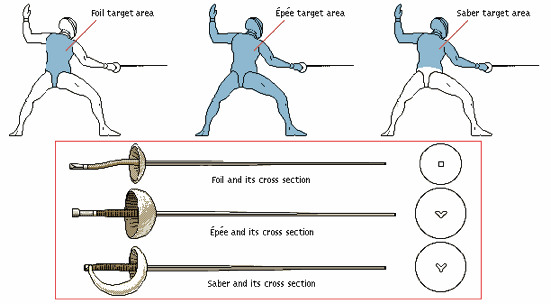
Fueling Your Gains: A Comprehensive Guide to Weightlifting Nutrition
Weightlifting, whether for strength gains, muscle hypertrophy, or overall fitness, demands a nutritional strategy as meticulously planned as your workout regimen. Simply put, you can’t build a house without the right materials, and your body is no different. Your muscles need the proper fuel – the right balance of macronutrients (carbohydrates, proteins, and fats), micronutrients (vitamins and minerals), and adequate hydration – to recover, repair, and grow stronger. This comprehensive guide will delve into the key nutritional aspects of optimizing your weightlifting performance.
I. Macronutrient Distribution: The Foundation of Your Diet
The cornerstone of a successful weightlifting nutrition plan lies in understanding and appropriately distributing your macronutrients. These aren’t just numbers on a scale; they are the building blocks of your body and the energy source for your workouts.
-
Protein: The Muscle Builder: Protein is the undisputed king when it comes to muscle growth and repair. It’s composed of amino acids, the essential components for building and maintaining muscle tissue. Weightlifters generally require a higher protein intake than sedentary individuals, typically ranging from 1.6 to 2.2 grams of protein per kilogram of body weight (0.73 to 1 gram per pound). Excellent sources include lean meats (chicken, turkey, fish), eggs, dairy products (Greek yogurt, cottage cheese), legumes, and plant-based protein powders. Distributing protein intake evenly throughout the day, with portions around workouts, is crucial for optimal muscle protein synthesis.
-
Carbohydrates: The Energy Source: Carbohydrates are your body’s primary energy source, particularly during intense weightlifting sessions. They replenish glycogen stores (stored glucose in your muscles and liver), crucial for fueling your workouts and preventing fatigue. Choose complex carbohydrates like whole grains (brown rice, quinoa, oats), fruits, and vegetables over refined carbohydrates (white bread, sugary drinks). The optimal carbohydrate intake varies depending on training volume and intensity, but generally, it should constitute a significant portion of your daily calories. Strategically consuming carbohydrates around workouts can enhance performance and recovery.
-
Fats: Essential for Hormone Production and Overall Health: Fats are often misunderstood, but they are essential for various bodily functions, including hormone production, nutrient absorption, and overall health. Prioritize healthy fats like avocados, nuts, seeds, olive oil, and fatty fish (salmon, tuna). These fats provide essential fatty acids that contribute to reducing inflammation and supporting overall well-being. While fats are calorie-dense, they play a crucial role in a balanced weightlifting diet.
II. Timing Your Nutrition: Optimizing Performance and Recovery
The timing of your nutrient intake is as important as the quantity. Strategically fueling your body before, during, and after workouts significantly impacts your performance and recovery.
-
Pre-Workout Nutrition: A pre-workout meal or snack should provide sustained energy without causing digestive discomfort. Focus on easily digestible carbohydrates and a moderate amount of protein. Examples include a banana with peanut butter, a small bowl of oatmeal, or a protein shake. The timing should be approximately 1-3 hours before your workout.
-
Intra-Workout Nutrition: For longer or more intense workouts, intra-workout nutrition can help maintain energy levels and prevent fatigue. A simple carbohydrate source, such as a sports drink or carbohydrate gel, can be beneficial.
-
Post-Workout Nutrition: The post-workout period is the critical window for muscle recovery and growth. Consume a meal or snack containing both protein and carbohydrates within 30-60 minutes after your workout. This combination replenishes glycogen stores and stimulates muscle protein synthesis. Examples include a protein shake with fruit, chicken breast with brown rice, or Greek yogurt with berries.
III. Hydration: The Often-Overlooked Essential
Hydration is often underestimated, but it is paramount for optimal weightlifting performance and recovery. Dehydration can lead to decreased strength, endurance, and cognitive function. Aim to drink plenty of water throughout the day, especially before, during, and after your workouts. Electrolyte-rich drinks can be beneficial, particularly during longer training sessions.
IV. Micronutrients: Supporting Overall Health and Performance
While macronutrients are the foundation, micronutrients (vitamins and minerals) play a crucial supporting role in various bodily functions, including muscle growth, energy production, and immune function. A balanced diet rich in fruits, vegetables, and whole grains will generally provide sufficient micronutrients. However, consider consulting a registered dietitian or nutritionist to assess your individual needs and determine if supplementation is necessary.
V. Caloric Intake: Balancing Energy Expenditure and Goals
Caloric intake is critical for achieving your weightlifting goals. If your goal is to gain muscle mass, you’ll need a caloric surplus (consuming more calories than you burn). Conversely, if your goal is to maintain your weight, you’ll need a caloric balance. If you’re aiming for weight loss, you’ll need a caloric deficit (consuming fewer calories than you burn). Accurately tracking your caloric intake and adjusting it based on your progress is essential. Consider using a food tracking app or consulting a registered dietitian to determine your optimal caloric intake.
VI. Individual Considerations and Professional Guidance
This guide provides general recommendations, but individual needs vary based on factors such as age, gender, training intensity, genetics, and pre-existing health conditions. Consulting a registered dietitian or sports nutritionist is highly recommended to create a personalized weightlifting nutrition plan tailored to your specific needs and goals. They can help you determine your optimal macronutrient distribution, caloric intake, and supplementation strategies, ensuring you’re fueling your body effectively for optimal performance and recovery. They can also help you navigate potential dietary restrictions or allergies, ensuring your plan is both effective and safe.
VII. Conclusion: Consistency and Patience Are Key
Optimizing your weightlifting nutrition plan is an ongoing process that requires consistency and patience. It’s not a quick fix, but rather a long-term commitment to fueling your body appropriately for optimal performance and health. By understanding the principles of macronutrient distribution, timing your nutrition strategically, prioritizing hydration, and paying attention to micronutrient intake, you can significantly enhance your weightlifting journey and achieve your fitness goals. Remember that consistency and patience are key; stick to your plan, monitor your progress, and make adjustments as needed. With a well-structured nutrition plan, you’ll not only see improvements in your strength and physique but also experience enhanced overall well-being.



